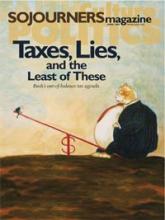As Joshua crosses the Jordan River into the promised land, he instructs representatives from each tribe to pick up a stone, saying, "When your children ask you in the time to come, What do these stones mean to you? then you shall tell them that the waters of the Jordan were cut off. So these stones shall be a memorial to the people of Israel" (Joshua 4:6-7). The redactors of the book of Joshua anticipated a time when testimony and memory would be all that stood between a people and the extinction of their history. In a similar way, the authors of two recent books argue for the role of memory and testimony in recovering histories that genocide would extinguish.
Victoria Sanford and Courtney Angela Brkic are contemporary witnesses - albeit in different ways - to the necessity of recovering histories of genocide. Both authors describe their work at the exhumations of mass graves for men, women, and children, civilians killed in cold blood by armed forces. Sanfords Buried Secrets is an exhaustive account of the Guatemalan armys planned genocide of the indigenous Mayan peoples in Guatemala during the 1980s. Her work comes out of her research as an anthropologist and is informed by her involvement in a truth commission called the Commission for Historical Clarification. In an interesting contrast, The Stone Fields is a memoir-like account of Brkics experiences as a researcher and young volunteer on U.N. exhumations in Bosnia-Herzegovina. Her book contains personal narratives of her familys history in the same region.
Read the Full Article
